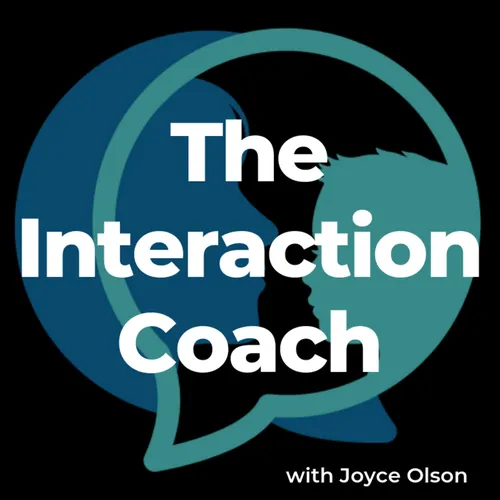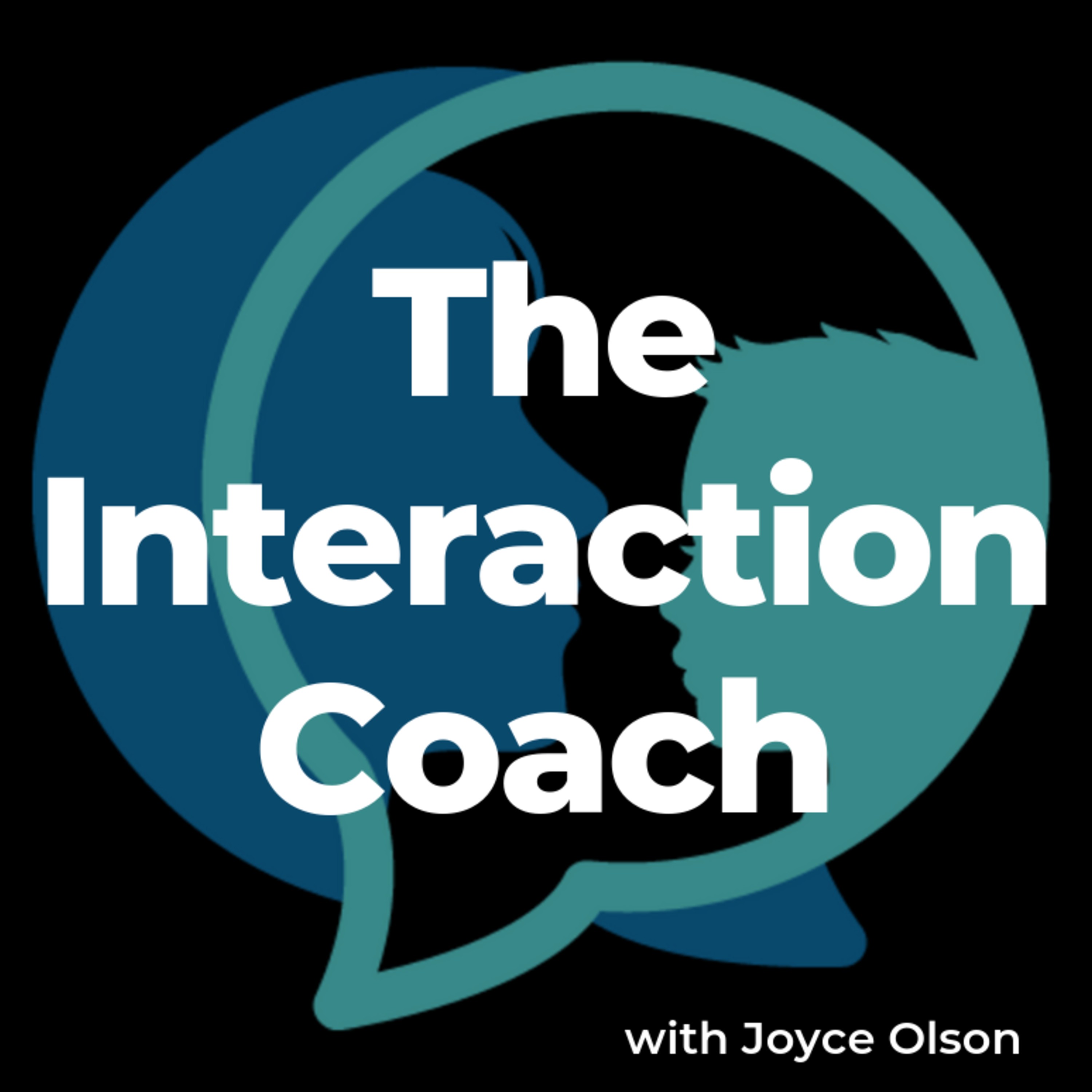
The Interaction Coach
You can help your child learn to talk with speech-language pathologist Joyce Olson of The Interaction Coach. Listen to daily tips that make every interaction a learning opportunity for speech and language development. Whether your child needs to start using words, make longer sentences, or improve social communication, this podcast is for you.
- Update frequency
- every day
- Average duration
- 6 minutes
- Episodes
- 234
- Years Active
- 2019 - 2020

4.153 LANGUAGE: Making Meaning: Use gesture “reach”
Get the handout: 16 gestures that help your child learn to talk.
Gestures are a powerful way for your child to learn intentional communication. They realize that you understand their idea based on a …

4.152 LANGUAGE: Making Meaning: Use gesture “no”
Get the handout: 16 gestures that help your child learn to talk,
Shaking their head “no” is typically shaped by turning away from food when being fed. You can help your child learn to make the moveme…

4.151 LANGUAGE: Making Meaning: Use gesture “give”
Get the handout: 16 gestures that help your child learn to talk.
Your child’s hand muscles develop so they can release an object on purpose, to set it in your hand. Practice in fun activities so givi…

4.150 LANGUAGE: Making Meaning: Respond to intended meaning of sounds
Your child will start to recognize that you respond differently to a certain sound they make. If a sound is effective in getting something they need, they will tend to use that sound more often in th…

4.149 LANGUAGE: Making Meaning: Label the meaning of child’s action
Get the handout: 16 gestures that help your child learn to talk.
Meaningful gestures develop before speech. This is the first type of intentional communication your child uses. Using gestures helps y…

4.148 LANGUAGE: Making Meaning: Express “want” and “no” with action
Get the handout: 16 gestures that help your child learn to talk.
Your child will start to use gestures to express a meaning. This is a major step in using intentional communication. Your child learns…

4.147 LANGUAGE: Understanding Words: Understand “more”
Your child can learn to expect that something will repeat when you use the word “more.” Use it during an interactive game to show that something happens after that word.
Also be observant of your chi…

4.146 LANGUAGE: Understanding Words: Learn characteristics of objects
Your child will learn to understand new words and concepts through their experiences with people, objects and activities. When you use one or two words to narrate the experience, you help them focus …

4.145 LANGUAGE: Understanding Words: Point to body parts with and without mirror
Your child will learn to point to more body parts at this level. First they’ll be able to find body parts they can see on themself, then find parts on their face/head while looking in a mirror. Watch…

4.144 LANGUAGE: Understanding Words: Look at pictures of familiar objects
Your child can recognize pictures of familiar objects. Looking at pictures is a good way to practice listening to and understanding the words that name these objects. It helps to focus your child on …

4.143 LANGUAGE: Understanding Words: Follow directions given with a gesture
Your child learns to understand words through their experiences in meaningful contexts. They learn to understand activities before they learn the words that go with them. Using a key word with an act…

4.142 LANGUAGE: Understanding Words: Recognize name
If you haven’t done this, go back to the first episode and listen through all the episodes to get helpful background information about the foundation of communication development. Be sure to do activ…

4.141 PLAY: Movement: Use index finger to poke or push
Your child will develop more precise movements of their fingers. They develop a pincer grasp with thumb and index finger.
Today’s activity: Use objects that naturally encourage your child to use thei…

4.140 PLAY: Movement: Crawl over, under, in, out
As your child gets better at independent movement, they like to go in and out.
Today’s activity: Crawl through a tunnel, under a chair, over a cushion (or you). Play social games by peeking in and ou…

4.139 PLAY: Movement: Play “Go”
Your child will learn they don’t have to wait for adults to get them things or do things for themself. Moving to get something is the first way they practice this independent action.
Today’s activity…

4.138 PLAY: Movement: Encourage standing with things just out of reach
Your child is developing intentionality—doing things on purpose, setting a goal and pursuing it. Independent movement helps your child develop their sense of self and how they can affect the world ar…

4.137 PLAY: Movement: Encourage initiation by exploring surroundings
Your child will be able to get into and out of a sitting position, crawl forward by pulling with arms or pushing with legs, get onto hands and knees, pull self up to stand, walk by leaning on furnitu…

4.136 PLAY: Attention to Objects: Expand play routines
Dr. Rebecca Landa spoke at the recent ASHA convention about the importance of making rich connections between neurons in different parts of the brain. The best way to do this is to provide learning o…

4.135 PLAY: Attention to Objects: Use two objects together
I attended a panel presentation at the ASHA convention that described how the state of Florida is training speech-language pathologists (SLPs) how to be effective parent coaches when they are helping…
